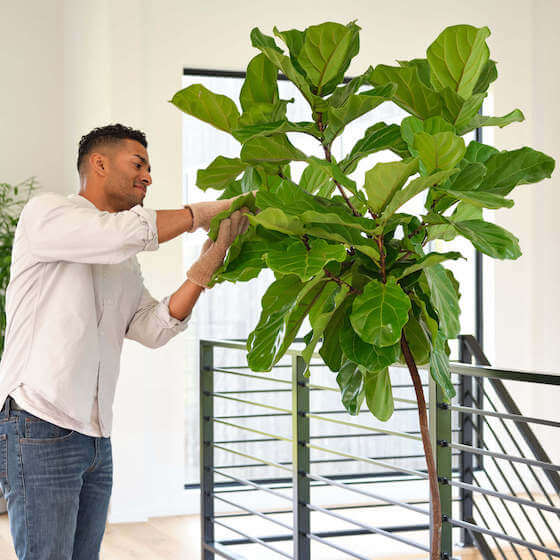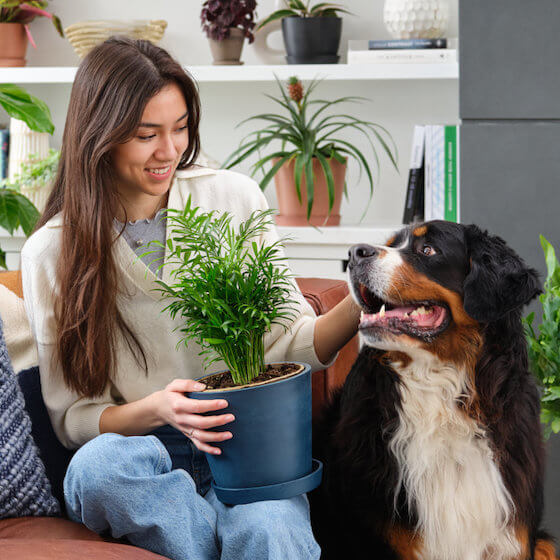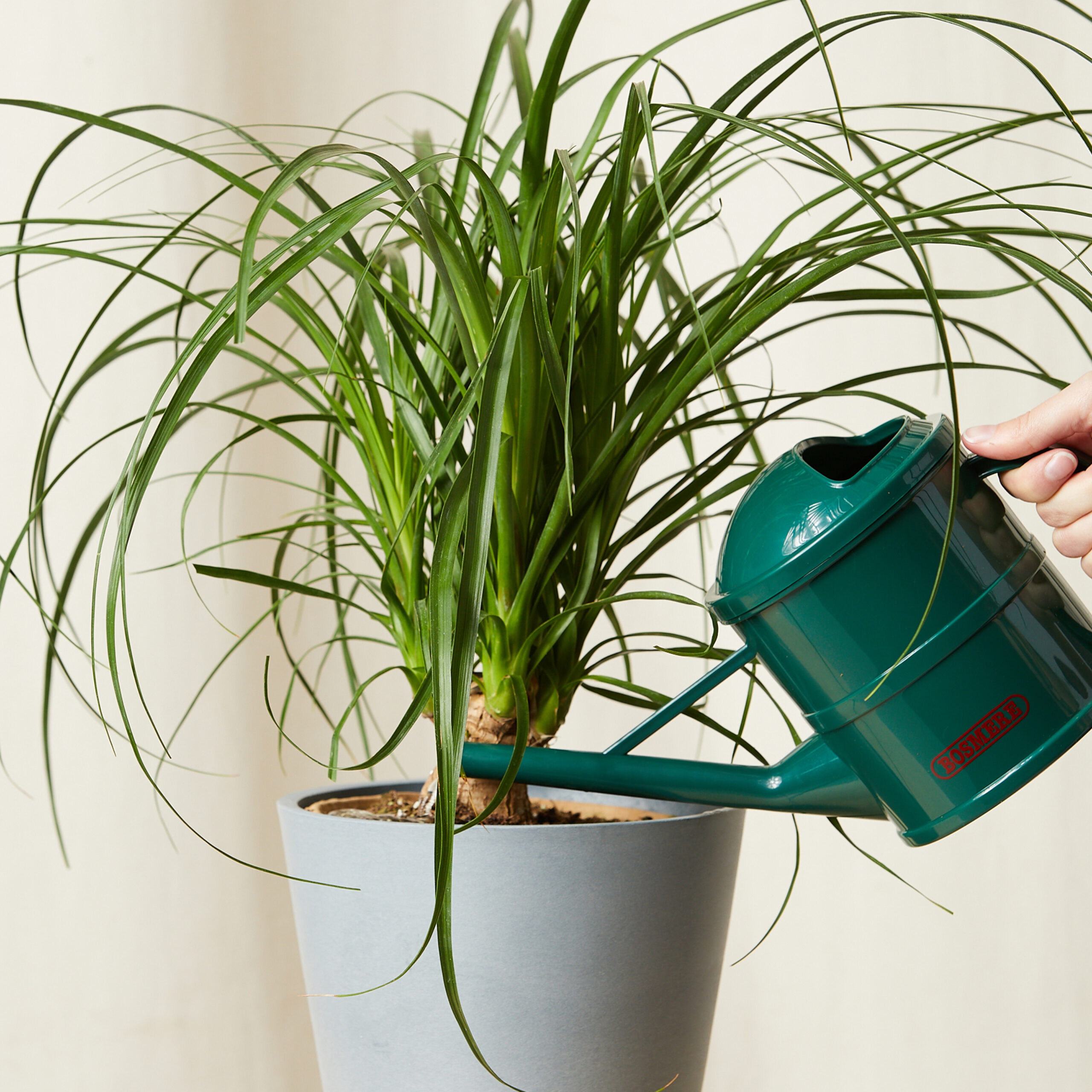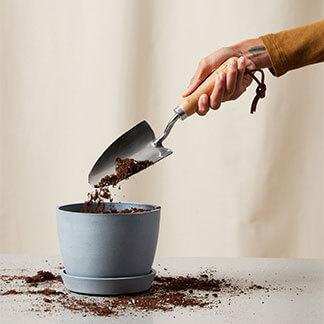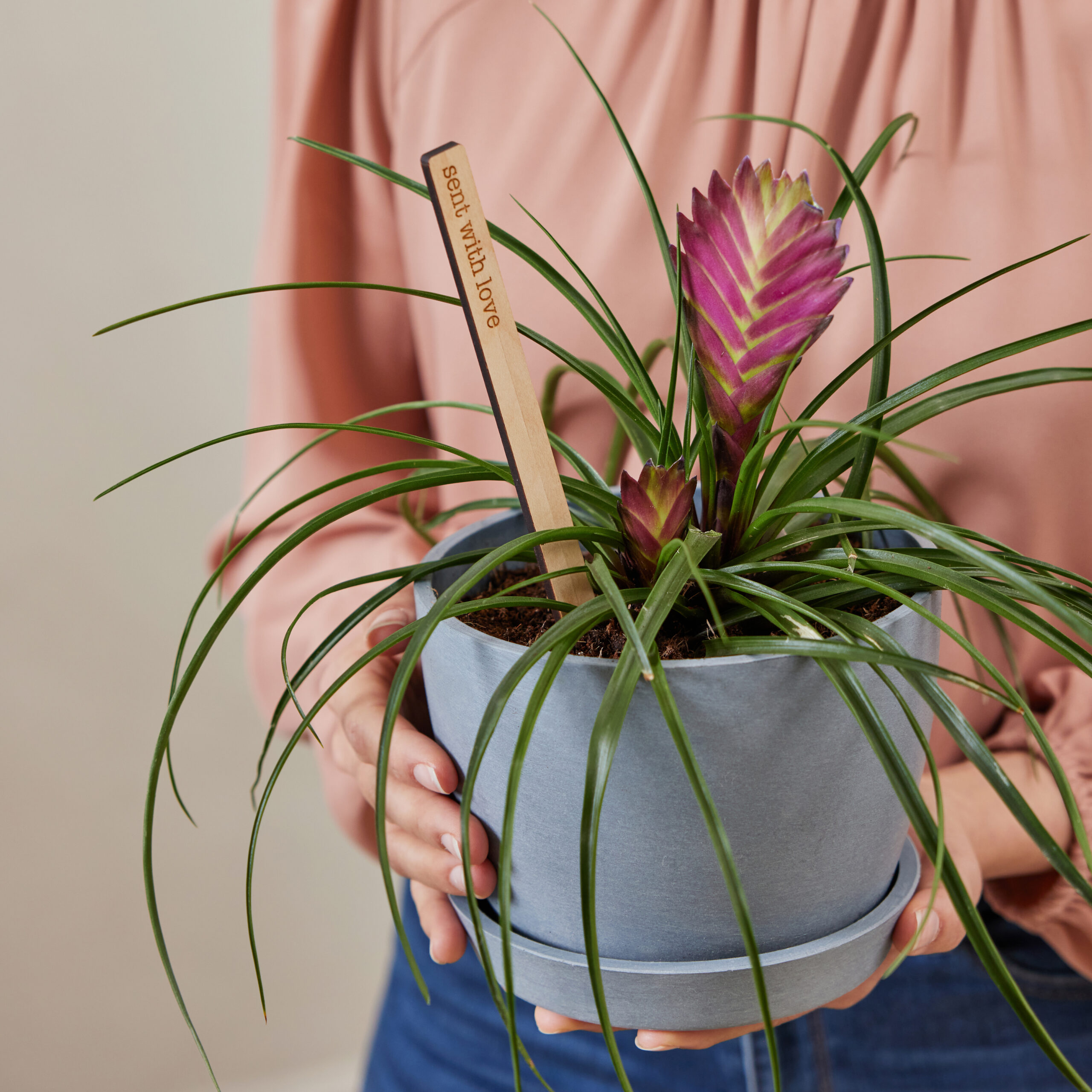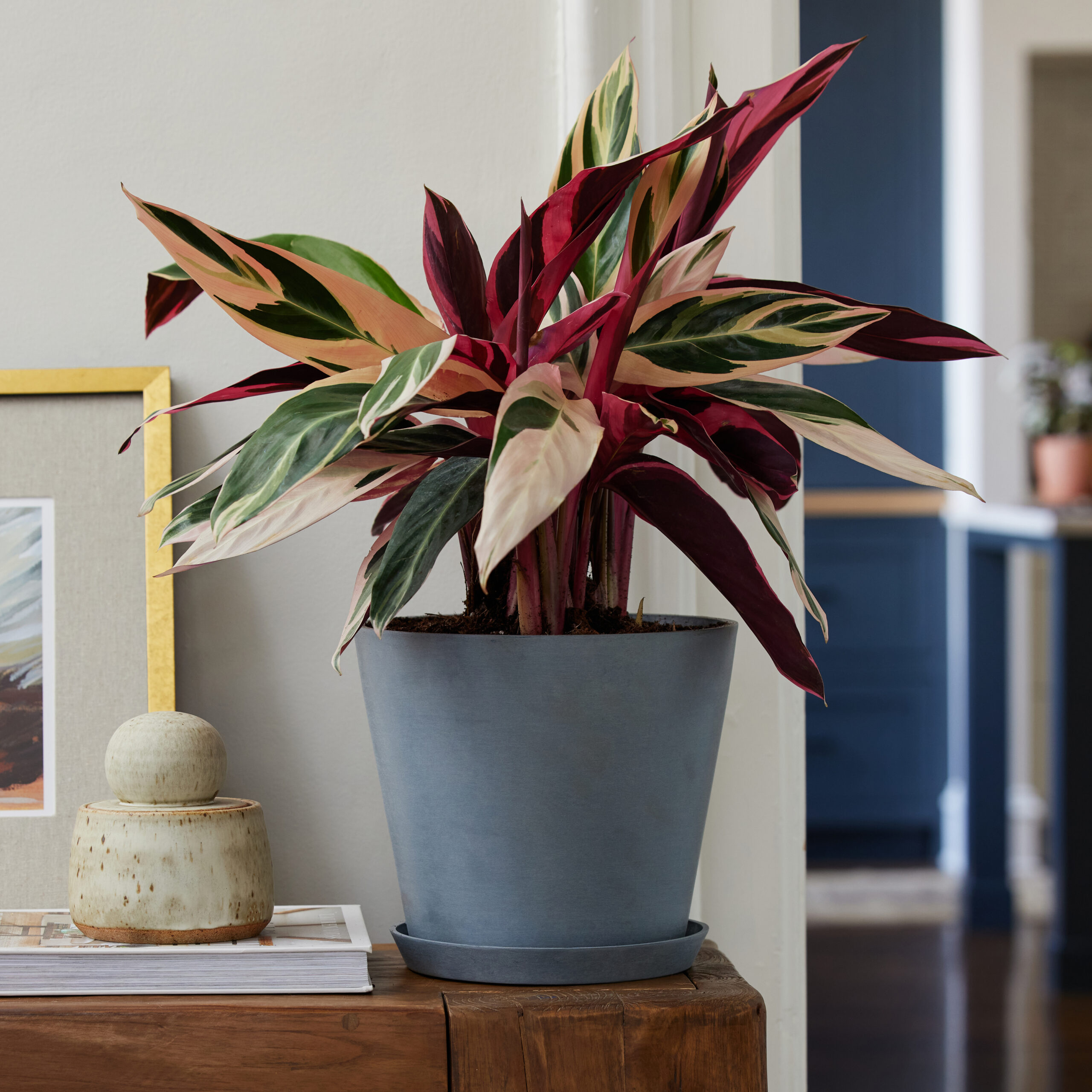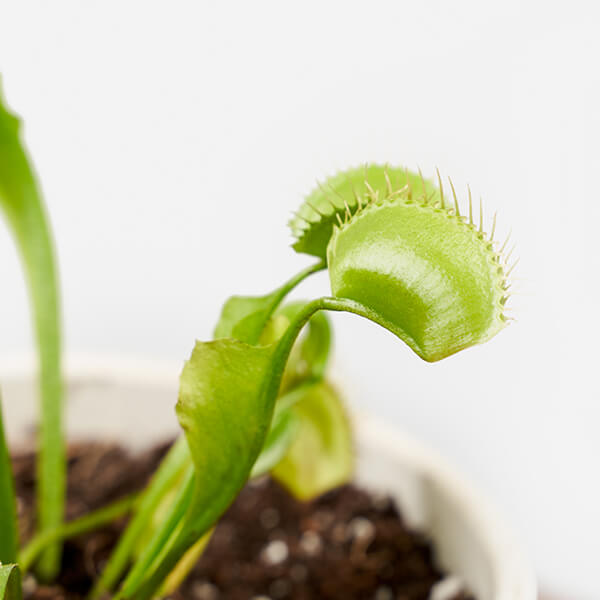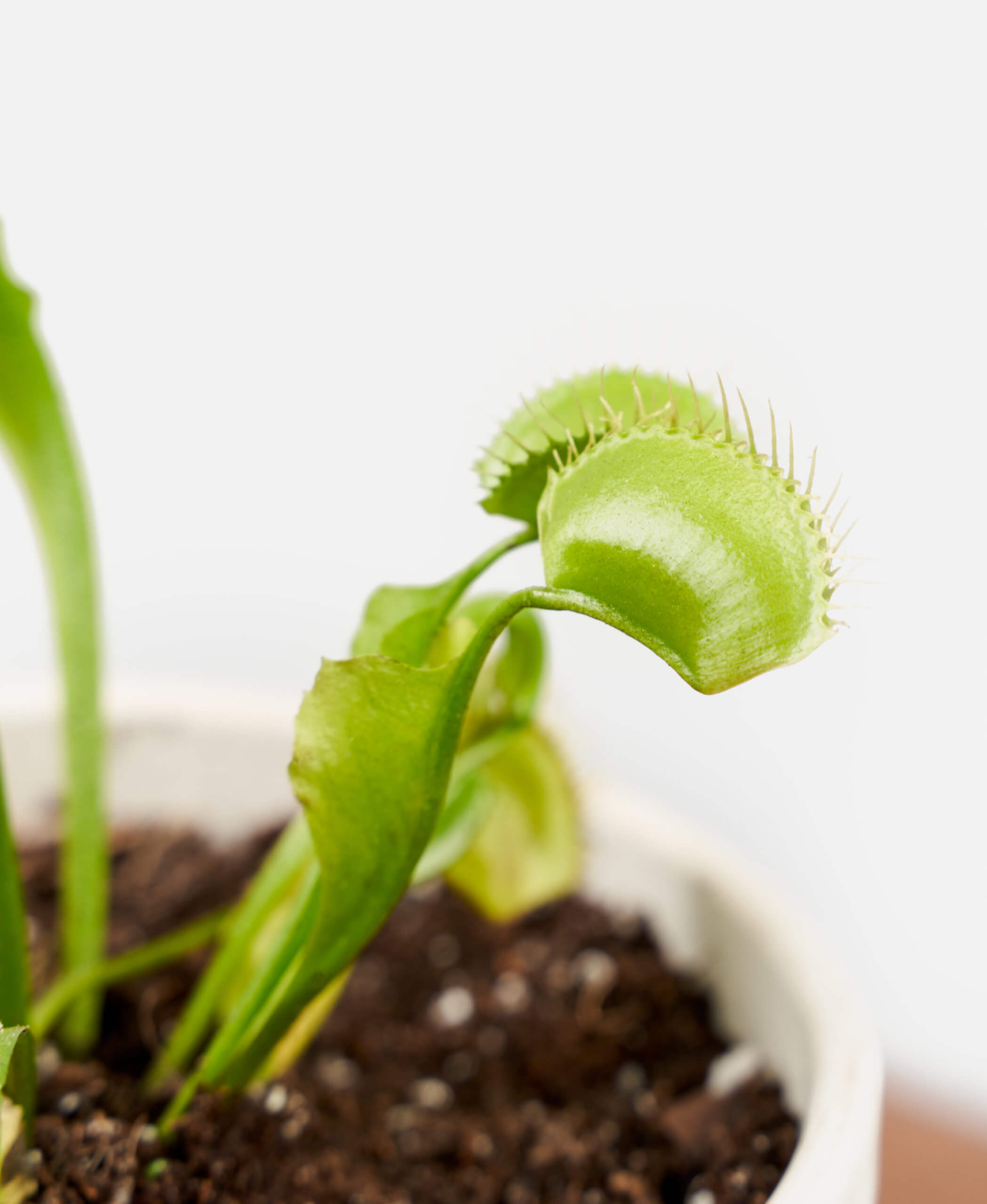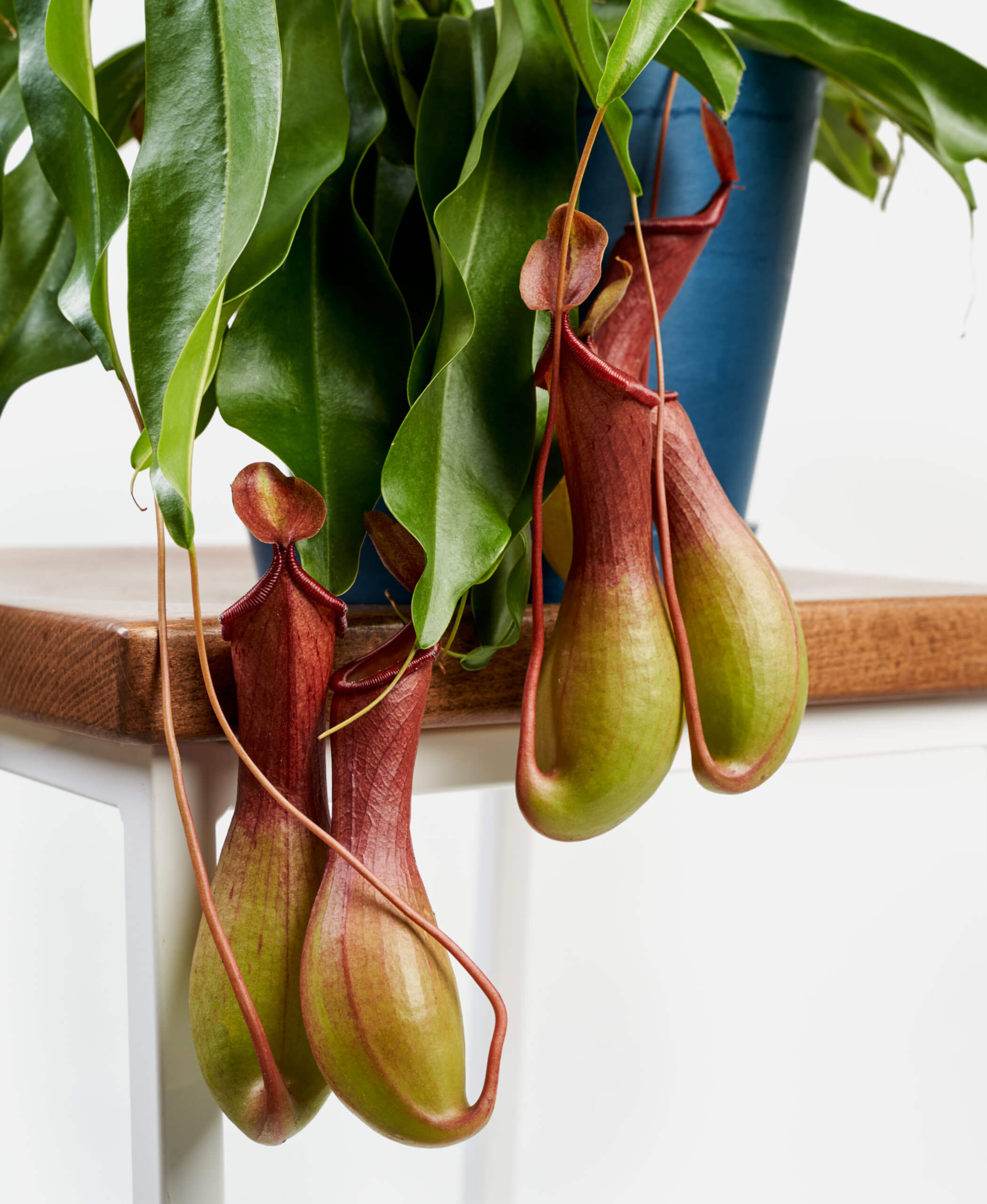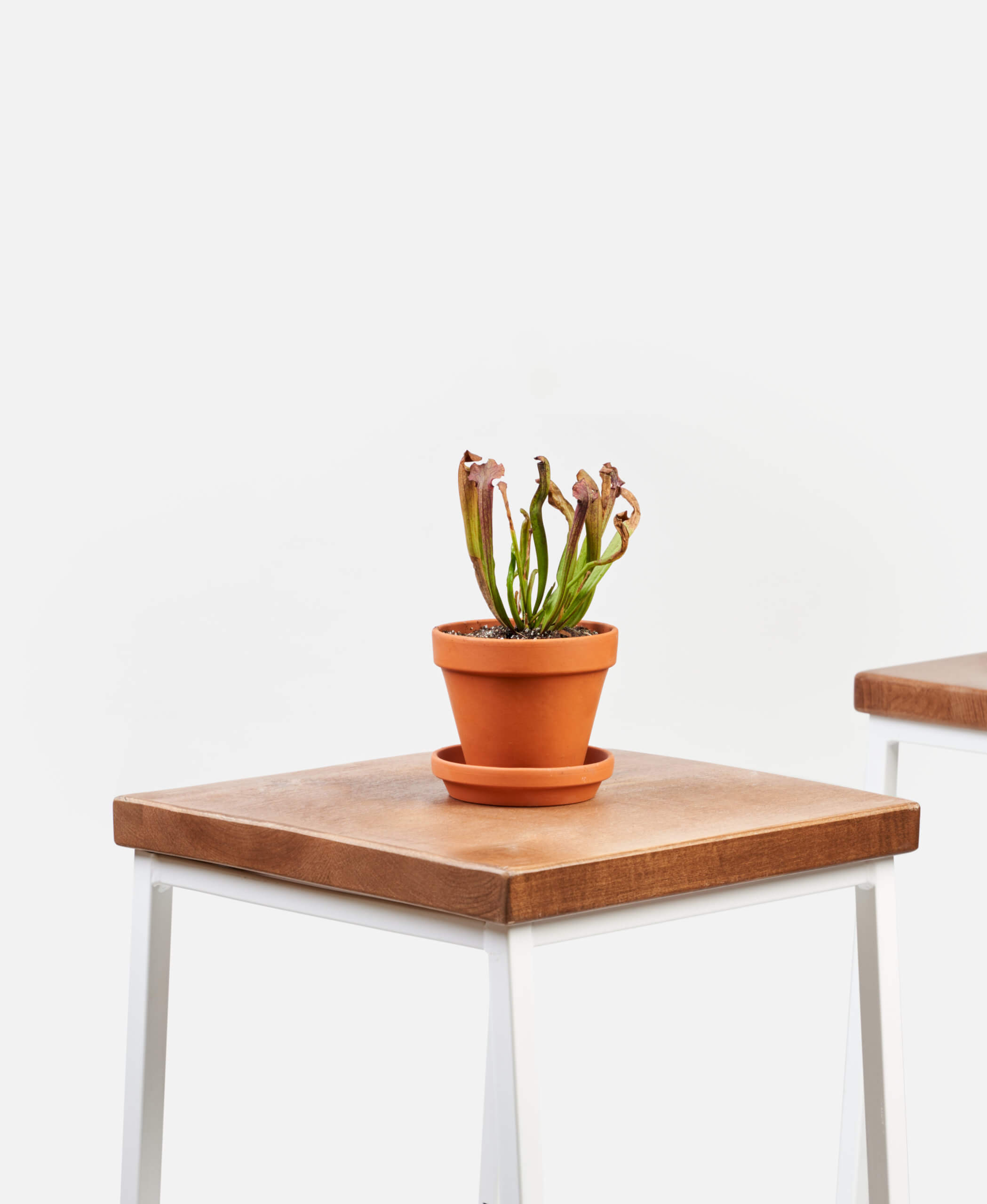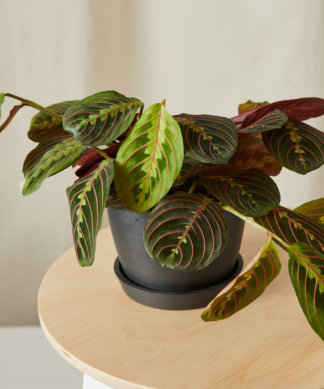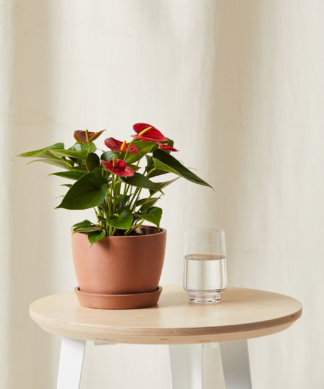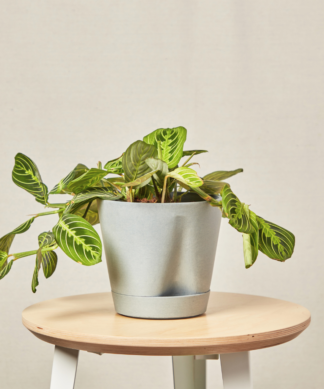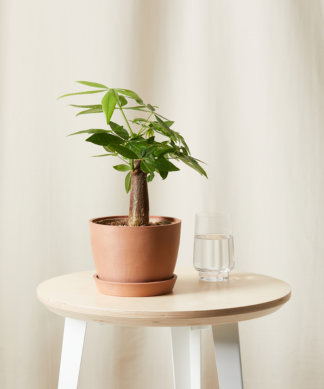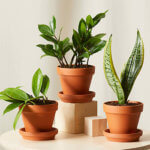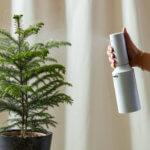How to care for your Carnivorous Plant
Use these instructions to care for a Carnivorous Plant. This guide will tell you how to water a Carnivorous Plant; its light, temperature, humidity preferences and any additional care it might need to help it grow.
Carnivorous Trumpet Pitcher Judith Hindle
Your pitcher plant prefers bright light. The more light it receives, the darker the purple coloring will show. In less direct light, the pitchers will remain predominantly green. Bright light is when your plant gets at least 6+ hours of direct sun a day. You will find this kind of light in an unobstructed southern or western window.
Your pitcher plant likes to stay consistently moist. Do not allow it to dry out, but do not let it sit in water. Water thoroughly when 25% of the medium is dry with rain or distilled water until you see it flow out of the drainage hole. Keep the pitchers ¼ with filtered or rainwater to keep them from drying out.
Your Pitcher Plant will greatly benefit from added humidity. They can tolerate lower humidity, but will often stop growing new pitchers and you might see some die-off of existing pitchers. You can add humidity for your pitcher plant by misting them, adding a humidifier nearby, or using a pebble tray.
Your Pitcher Plant will grow best in temperatures above 50°F.
Your plant does not need any fertilizer, as it gains nutrition from the insects it traps and digests. Using fertilizer can actually harm your plant as it is not used to living in nutrient-rich soils.
Your Pitcher Plant is mildly toxic to humans and pets if ingested.
If you do not have many insects in your home and want to give them a little treat, you can feed them a recently dead or live insect such as a fly, roach, or spider once every month. Make sure that the insect fits into the pitcher easily.
Carnivorous Venosa Red
Your pitcher plant prefers bright light. The more light it receives, the darker the purple coloring will show. In less direct light, the pitchers will remain predominantly green. Bright light is when your plant gets at least 6+ hours of direct sun a day. You will find this kind of light in an unobstructed southern or western window.
Your pitcher plant likes to stay consistently moist. Do not allow it to dry out, but do not let it sit in water. Water thoroughly when 25% of the medium is dry with rain or distilled water until you see it flow out of the drainage hole. Keep the pitchers ¼ with filtered or rainwater to keep them from drying out.
Your Carnivorous Venosa Red will greatly benefit from added humidity. You can add humidity for your pitcher plant by misting them, adding a humidifier nearby, or using a pebble tray.
Your Carnivorous Venosa Red will grow best in temperatures above 50°F.
Your Venosa Red does not need any fertilizer, as they gain nutrition from the insects they trap and digest. Using fertilizer can actually harm them, as they are not used to living in nutrient-rich soils.
Your Venosa Red is mildly toxic to humans and pets if ingested.
If you do not have many insects in your home and want to give them a little treat, you can feed them a recently dead or live insect such as a fly, roach, or spider once every month. Make sure that the insect fits into the pitcher easily.
Carnivorous Venus Fly Trap
Your Venus Fly Trap prefers direct or very bright indirect light. It will not tolerate low light.
Water when 25% of the soil volume is dry. Water slowly, allowing it to soak into the soil until it drips out of the drainage hole. Discard any excess water that accumulates in the saucer.
Your Venus Fly Trap prefers higher than average household humidity. Add a pebble tray, group plants to create a humid microclimate, or place a humidifier nearby.
Your Venus Flytrap will thrive in average room temperatures between 60-80°F.
Your Venus Fly Trap does not need any fertilizer. Instead, it gains nutrition from the insects it traps and digests. Using fertilizer can harm your plant since it did not evolve to live in nutrient-rich soil.
This plant is considered non-toxic and pet-friendly.
Feed your Venus Fly Trap a live or recently dead insect such as a fly, roach, or spider once every month if you notice it isn’t trapping many insects on its own.
Nepenthes Pitcher Plant
Your Nepenthes Pitcher Plant prefers bright indirect light. Too little light and growth will slow, but extended periods of direct light can burn the leaves.
Your Pitcher Plant likes to stay consistently moist. Do not allow it to dry out, but do not let it sit in water. Water thoroughly when 25% of the medium is dry. Pitchers will naturally produce a small amount of enzymatic digestive fluid only once while it’s growing. This fluid is what your pitcher plant uses to catch and digest prey. If the fluid gets knocked out and the pitcher is empty, fill the pitcher ¼ with filtered or rainwater to keep it from drying out.
Your Nepenthes will greatly benefit from added humidity. They can tolerate lower humidity, but will often stop growing new pitchers and you might see some die-off of existing pitchers. You boost the humidity for your pitcher plant by misting them, adding a humidifier nearby, or adding a pebble tray under it.
Your Nepenthes will thrive in average room temperatures between 60-80 degrees.
This plant does not need any fertilizer, as it gains nutrition from the insects it traps and digests. Using fertilizer can actually harm your plant as it is not used to living in nutrient-rich soils.
Your Pitcher Plant is toxic to humans and pets if ingested.
If you do not have many insects in your home and want to give them a little treat, you can feed them a recently dead or live insect such as a fly, roach, or spider once every month. Make sure that the insect fits into the pitcher easily. Prune off any pitchers that are more than 50% discolored to help your plant focus on new growth as it will only grow one pitcher per leaf.
Sarracenia Pitcher Plant
Your pitcher plant prefers bright light. The more light it receives, the darker the purple coloring will show. In less direct light, the pitchers will remain predominantly green. Bright light is when your plant gets at least 6+ hours of direct sun a day. You will find this kind of light in an unobstructed southern or western window.
Your pitcher plant likes to stay consistently moist. Do not allow it to dry out, but do not let it sit in water. Water thoroughly when 25% of the medium is dry with rain or distilled water until you see it flow out of the drainage hole. Keep the pitchers ¼ with filtered or rainwater to keep them from drying out.
Your pitcher plant will greatly benefit from added humidity. You can add humidity for your pitcher plant by misting them, adding a humidifier nearby, or adding a tray full of pebbles and water under it.
Your pitcher plant will thrive in average room temperatures between 60-80°F.
This plant does not need any fertilizer, as it gains nutrition from the insects it traps and digests. Using fertilizer can actually harm your plant as it is not used to living in nutrient-rich soils.
Your pitcher plant is toxic to humans and pets if ingested.
If you do not have many insects in your home and want to give them a little treat, you can feed them a recently dead or live insect such as a fly, roach, or spider once every month. Make sure that the insect fits into the pitcher easily. Prune off any pitchers that are more than 50% discolored to help your plant focus on new growth.
Sundew
Your Sundew prefers bright light but can tolerate some indirect bright light. Too little light and growth will slow.
Your pitcher plant likes to stay consistently moist. Do not allow it to dry out, but do not let it sit in water. Water thoroughly when 25% of the medium is dry with rain or distilled water until you see it flow out of the drainage hole.
Your Sundew will benefit from added humidity. You can add humidity by misting them, adding a humidifier nearby, or using a pebble tray.
Your Sundew will thrive in average room temperatures between 50-80°F.
Your Sundew does not need any fertilizer, as it gains nutrition from the insects it traps and digests. Using fertilizer can actually harm it, as it is not used to living in nutrient-rich soils.
Your Sundew is toxic to humans and pets if ingested.
If you do not have many insects in your home and want to give them a little treat, you can feed them a recently dead or live insect such as a fly, ant, or gnat once every month. Make sure that the insect fits into their traps easily.
